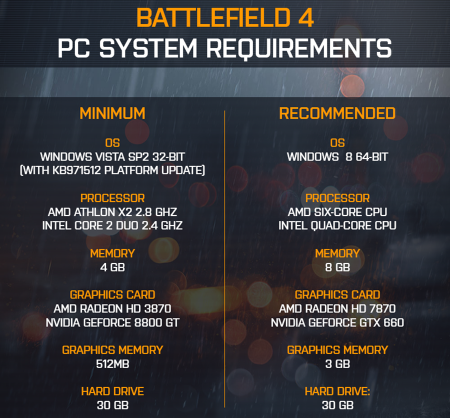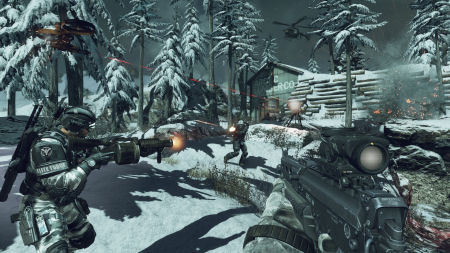As the sea-faring partner in crime to Edward Kenway, Jackdaw quartermaster Adewale often projected a sense of self that made him a ripe candidate for the assassins. Adewale is now ready to forge own path, though Freedom Cry is just a small window into Adewale's solo exploits; we don't bear witness to his initiation into the Brotherhood, and this downloadable content merely teases us with a Templar pursuit in its opening minutes, which quickly goes awry in a storm.
If this stormy start rings a bell, it's because it curiously mirrors the beginning of Black Flag, except now it's Adewale lying on a beach in the West Indies with a mystery package from the Templars. While he's eager to resume his mission, his detour in tracking the package's recipient leads him to Bastienne, a madam in Port-au-Prince. Given Adewale's firsthand experience as a slave and his inherent sense of justice, his interests in freeing the local slaves align with the madam's. Considering Bastienne's association with the Templars, their alliance is a tenuous one, which is further complicated when they don't see eye to eye on how to best initiate a rebellion.
Whereas Black Flag merely touched upon the plight of slaves in the New World, slavery is the main thematic thrust of Freedom Cry. The center of Port-au-Prince provides limitless opportunities to steal keys to open cages and end human auctions stealthily or brutally. Echoing a scene in Black Flag where Kenway is carrying a dying character, Adewale has opportunities to carry poor injured slaves to hideaways in the jungle. It's infinite slave spawning as designed, and given your obligations to the main story quests, the perpetual influx of slaves is a blunt allegory about how freeing such captives isn't a task for one man, let alone one assassin. Yet when you start seeing runaway slaves pop up from the same spots and chased along the same paths repeatedly, these respawns bring out the game's monotony. Moreover, there's no penalty for ignoring these rescue missions aside from missing out on bonus items. It feels mildly twisted that slaves are still treated as a commodity even after you set them free. The more you liberate, the greater the access to optional enhancements, such as more ammo pouches and a steel-forged machete. The story justifies this with exposition that shows the freed slaves are working toward your cause and giving you resources to free others. That doesn't change the discomforting fact that these humans have been itemized and given a value related to various upgrades.
Spread across nine missions, each with its own series of goals, Freedom Cry plays like a sampler platter of the many mission types in Black Flag. There are ships to sink, suspects to tail, and targets to kill. Just because this mini campaign is a fraction of the size of Kenway's adventure doesn't mean the missions themselves have to be smaller. Yet that's what you get with a couple of the eavesdropping settings; one confines you within a bar, rather than asking you to snoop via long walks through town. There's nothing wrong with these brief objectives, though they do give a sense that the game is more jam-packed with goals than it actually is. Like most other Assassin's Creed games, Freedom Cry is a more gratifying experience when you're accomplishing certain missions stealthily. It's all the more rewarding to liberate plantations quietly, since land owners begin to kill slaves once you're spotted.

Between the dense town of Port-au-Prince and the adjacent jungle that provides cover for freed slaves, island life can feel rather confining. So it's to Freedom Cry's credit that it features the same mainline and optional content ratio of Black Flag. That includes a segment of the Caribbean available to explore by sea with no fewer than nine question marks worth investigating, as well as fort-invading, harpooning, and diving for treasure within sunken ships. While this gameplay loop very much resembles what you would experience on the seas of Black Flag, the added presence of slave ships to liberate provides a new, albeit minor, level of strategy in ship combat. The challenge comes in destroying escorts without damaging slave ships, a tough task depending on how close to each other ships remain in relation to your cannons' trajectories. The one drawback is that these opportunities to save large groups of slaves at sea in a single battle undermine the value of spending time freeing slaves on land one person at a time.
Adewale has a much cooler head than Edward Kenway, so it's easy to picture him adept at wielding swords and pistols while gracefully taking over enemy ships. Yet because of the limited resources of the resistance, he spends most of the game with brutal tools like a heavily used machete and the blunderbuss. However crude, the machete affords Adewale the same counter and break defense moves that we've seen from many other assassins. As a rare shotgun-style weapon for the series, the blunderbuss is highly effective in killing at least four colonists in a single round, and dubiously so when you have slaves and other bystanders in the line of fire. Since the main missions take less than four hours to clear, upgrading both Adewale and his ship is a much more abbreviated--and ultimately optional--endeavor than the deeper enhancement paths in Black Flag. You gain access to rope, sleep, and berserk darts early on, as well as the smoke bomb, which is a crowd-stunning weapon that, as it always has, gives too much power to the player.
From the infectious sea shanties to the jovial singing circles at the taverns, Black Flag was certainly the most musically vocal game in the series. Freedom Cry manages to match that, which is an achievement when you find out it doesn't feature sea shanties. This time, the in-game singing comes from the slaves tending the fields. Whether the songs were the earliest form of slave songs or merely hymns that evolved from African origins, I couldn't discern. Whatever their sources, the songs add texture to this cast of captive non-player characters, not to mention the game overall. Even Adewale participates when he uses a one-line chant as a password within the resistance movement. And while the non-vocal Pirates of the Caribbean-inspired music of Black Flag was functional at best, Freedom Cry's soundtrack gives the sea combat an epic atmosphere that the ship battles of the main game lacked. This suspiciously memorable soundtrack compelled me to check the game's credits, and where I learned that the music was composed by Remember Me's talented Olivier Deriviere.
With the strongest ensemble cast in the franchise, Assassin's Creed IV: Black Flag wasn't short of assassins and pirates worthy of their own playable tales, DLC or otherwise. Freedom Cry is more than just another Assassin's Creed IV chapter with a reskinned protagonist, but its troubled handling of dark themes makes this a turbulent voyage.

